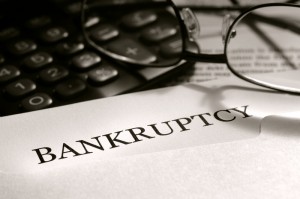 After receiving a bankruptcy discharge most debtors are very concerned about improving their credit score. Fortunately, simply filing bankruptcy and receiving a discharge usually helps to improve your score within six months to a year after discharge. Eliminating your debt instantly improves your debt to income ratio, making you a much better candidate for borrowing money than when you were struggling with debt. However, there are a few things you can do to improve their credit score faster.
After receiving a bankruptcy discharge most debtors are very concerned about improving their credit score. Fortunately, simply filing bankruptcy and receiving a discharge usually helps to improve your score within six months to a year after discharge. Eliminating your debt instantly improves your debt to income ratio, making you a much better candidate for borrowing money than when you were struggling with debt. However, there are a few things you can do to improve their credit score faster.
First, you need to make sure that you always pay your bills on time. Making payments to creditors late hurts a credit score. It is very important to pay rent, utilities, car payments, house payments, property tax, and other bills on time every month. The longer you can establish a positive payment history the better the credit score.
Second, if you are having difficulty getting credit then consider taking out a secured credit card. Basically, these are credit cards that are secured by money in an account at a bank. These cards will allow you to use a credit card and prove that you can handle your credit responsibly. I’ve also read that debtors should carry a small balance every month. Don’t pay off the balance on the credit card each month but rather carry a balance of less than 25% of the total available credit from month to month. This shows that you can handle credit responsibly.
Third, review your credit report regularly to look for errors and omissions. If you find a mistake then contact the creditor immediately to request that the error be corrected. If your creditors aren’t reporting to the credit agencies then contact them to ask them to report your positive payment history. While reviewing your credit report you may also find notations for debt that doesn’t even belong to you. This is actually not uncommon. Creditors are people too. They make mistakes and sometimes debt is attached to the wrong social security number. When you find these mistakes contact the creditor to have the information removed.